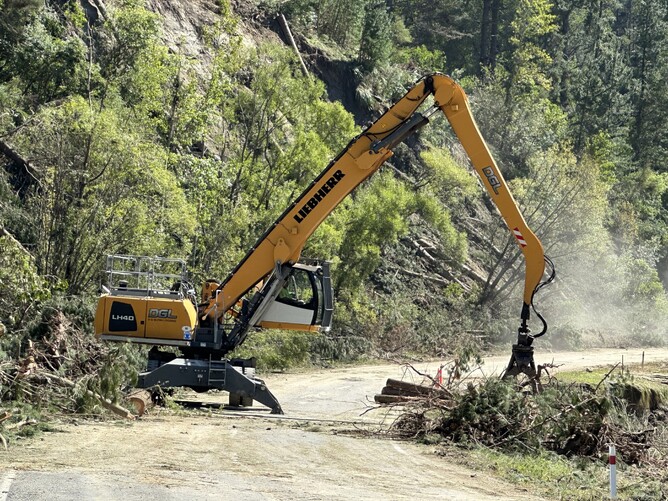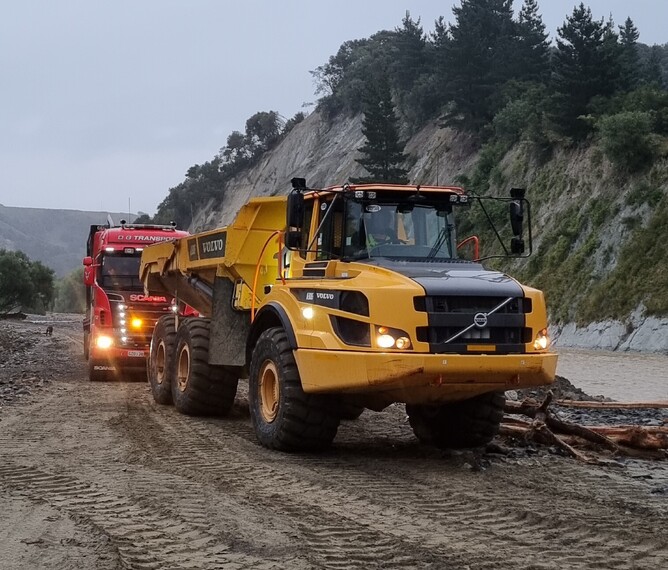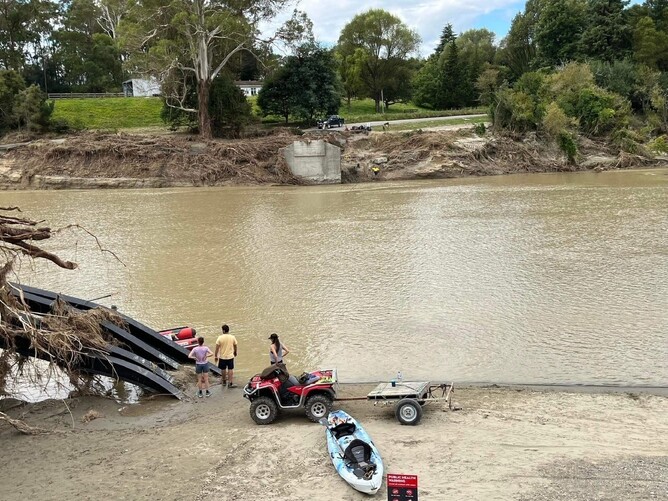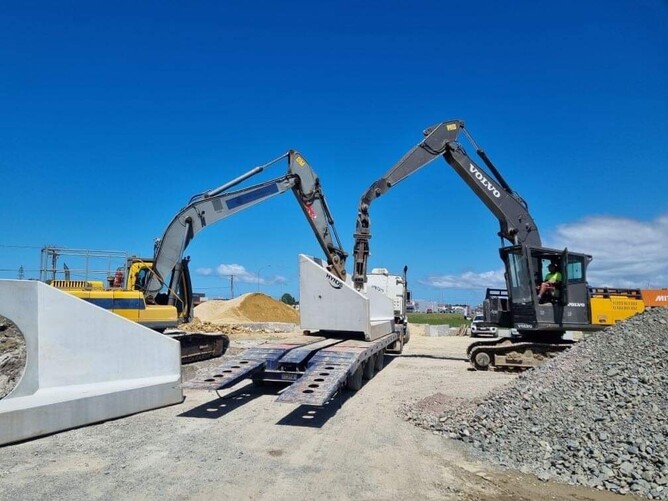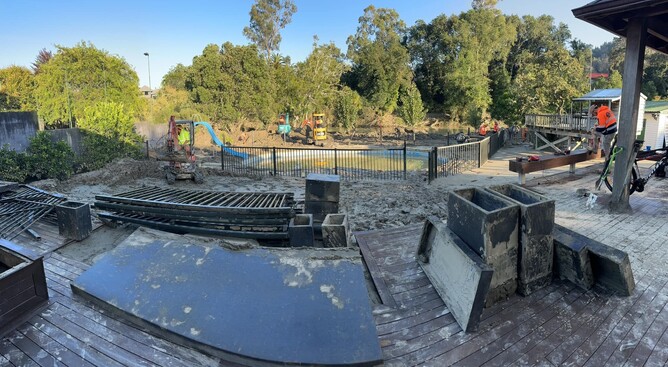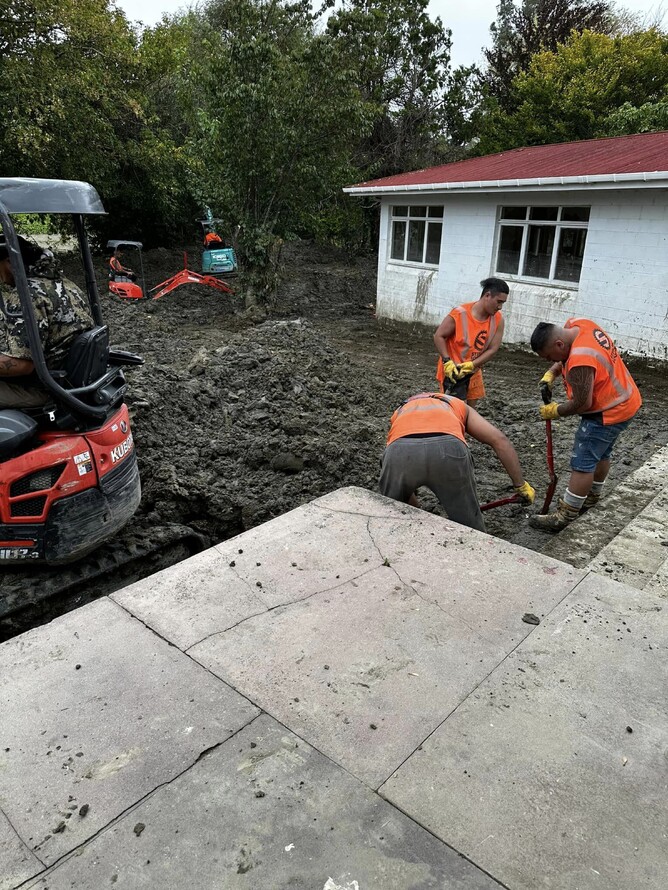New Zealand’s forestry contractors are mucking in to help clean up post Cyclone Gabrielle while unable to get back to work as normal.
Some forestry contractors affected by Cyclone Gabrielle remain unable to get back to work, reliant on landowners to grant re-entry to the forests. While roading accessibility and safety remain key concerns, forestry contractors still have bills to pay and staff to retain until they know when they can go back to work or not.
Forest Industry Contractors Association CEO Prue Younger says contractors are adapting as best they can, redeploying machinery and manpower while they try to keep staff busy and income coming in. It will be important to understand if they are going to be supported by government, like other sectors so reliant on the land for employment are.
“We’re hearing stories of contractors getting stuck in and helping out in their communities, whether that’s volunteering or seeking alternative revenue through short-term clean up jobs,” she says.
“As the workforce on the ground within the wider forestry industry, they’re doing us proud, looking for opportunities to pitch in and help, while also keeping their staff busy.”
Chrystal and Gavin Edmonds run Stirling Logging based in Wairoa and Gisborne. They employ about 20 staff and have more than half their team out and about helping to clean up.
“We’ve got about 11 of our guys out clearing silt in Gisborne with 4 diggers we’ve hired. We are just going house to house, trying to give a hand and help out wherever we can.”
Although at the moment the cost to help is mostly coming out of their own pocket, Gavin says either way it’s got to be done, especially with the increasing hygiene health risks. But he says it’s also good to be busy.
“We know we’re stronger together. We’re keeping our guys employed and busy and keeping good morale going till we can get back to work.”
Hawkes Bay’s Amy and Toby Satherley from ATS Logging employ 23 staff and are redeploying machinery and staff to help with clean up jobs.
“We’ve got our bucket diggers and grapple diggers helping with recovery and clean up. We’ve been doing everything from placing rocks out at Awatoto Beach to clearing under bridges, clearing trees and opening up roads to help get people out of inaccessible and remote areas where they’re still cut off,” she says.
“Our machine operators are doing their best, even though it’s work they probably never expected to be doing.”
“A lot of the farming community is still cut off and when we get through to them they’re all really stoked to see us out there getting their roads open and houses cleared. There are so many people out there grateful for the help of contractors.”
Rob Scurr from DG Glenn is also on the ground in Hawkes Bay. DG Glenn is one of the largest contractors in the region employing 150 plus staff.
“We’re using our machines to distribute supplies and gain access on different roads and networks to reach isolated people. Companies like Mainfreight and Shaws have been in the background supplying stuff and we’ve been helping to distribute it,” he says.
“We were able to get a 20-tonne generator into Patoka on Thursday – from our work in the bush we knew a different way to get in there using our machine, so we just got in there and got it done.”
Ms Younger says all contractors are focused on keeping their staff and their livelihoods, while trying to keep some income coming in to stay afloat while doing their bit to help with clean-up efforts.
“FICA has an initiative in place – “Moving our People” – coordinating the redeployment of contractors to clean up jobs and forestry work such as wind throw tree falling that is available in other regions,” she says.
“Like other parts of the food and fibre sectors that are challenged and debating their futures, our contractors as service providers to landowners are in the same boat. They seek clarity around support and around their livelihoods so they can keep their staff and their businesses.”

